detail profile shaken aimanov
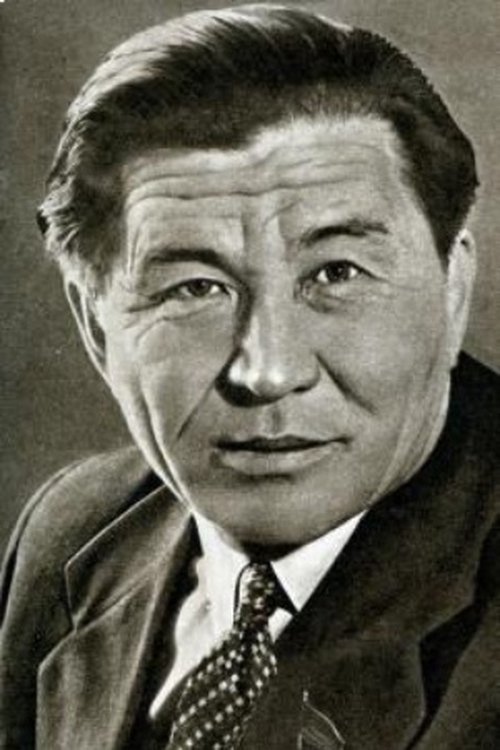
Shaken Aimanov
Shaken Ajmanov
atau dikenal sebagai
Riwayat Hidup
Shaken Kenzhetaevich Aimanov (Kazakh: Шәкен Кенжетайұлы Айманов; born 15 October 1914 – 23 December 1970; Bayanaul) was a Soviet (Kazakh) film director, screenwriter, actor.
He is considered to be the father of Kazakh cinematography, as well as an iconic film director and actor.
He directed eleven films between 1954 and 1970.
Aimanov was born in Bayanaul, Russian Empire (now Kazakhstan) in 1914.
He studied at the Kazakh Institute of Education in Semipalatinsk (now Semey) from 1931 to 1933.
He began his acting career at the Kazakh Theater of Drama in Alma-Ata in 1933.
Vivid social and psychological characteristics are inherent in his art.
His best roles include Akhan Seri in Akhan Seri and Aktokty by Gabit Musirepov, Isatai in Isatai and Makhambet by Akhinzhanov, Kobylandy Batyr in Kobylandy by Mukhtar Auezov, Kodar in Kozy Korpesh and Bayan Sulu by Gabit Musirepov, Petruchio in The Taming of the Shrew by William Shakespeare, and Tikhon in The Storm by Alexander Ostrovsky.
He also worked as a director and from 1947 to 1951 was chief director at the Kazakh Theater of Drama.
Working in films since 1940, as both an actor and a director, Aimanov played Zhambyl in the film of the same name and directed the 1958 film Our Dear Doctor, among others.
He was a deputy of the fourth and seventh convocations of the Supreme Soviet of the Kazakh SSR.
In 1963 he was a member of the jury at the 3rd Moscow International Film Festival.
[5] In 1952, he received the Stalin Prize for his work in the theater, and in 1968 he received the State Prize of the Kazakh SSR.
He has been awarded the Order of Lenin and the Order of the Red Banner of Labour.
The Kazakhfilm, where Aimanov worked as a film director, was named after him in 1984.
The Shaken's Stars International Film Festival was held in 2013 to support and help young artists and filmmakers.
Info Pribadi
Peran Yang Di Mainkan Shaken Aimanov
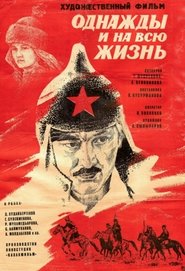 The first postrevolutionary years in Kazakhstan...
The first postrevolutionary years in Kazakhstan...Once and for a Lifetime 1977
The first post-revolutionary years in Kazakhstan, the period of formation of Soviet power. More than once, the bandits tried to deal with the singer of the people, the poet Erken, but could not silence him. It seemed that the earth itself kept him safe — he found shelter and help in the homes of the poor, escaped from prison, on the instructions of the Bolshevik committee, under the guise of a tramp, made his way to the south, explaining everywhere the advantages of Soviet power for the people. Erken carried his love for Aklima through his whole life. Having met her once in one of the villages, he could not forget a young woman whose fate was tragic.
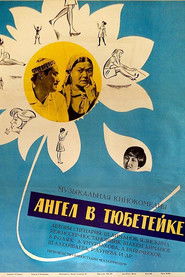 Taylak is a kind teacher of...
Taylak is a kind teacher of...Angel Wearing Tubeteika 1969
Taylak is a kind teacher of geography. People call him "Angel in a tubeteika, a traditional Central Asian skull cap," for his kind caring personality and also because he never parts with his traditional skull cap. One day his mother comes to Almaty to visit him. She decides that it's time her son got married and she starts to look for a bride for Taylak.
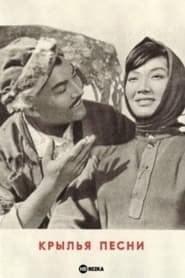 Bai Nurtaza hopes to find in...
Bai Nurtaza hopes to find in...Wings of Song 1966
Bai Nurtaza hopes to find in the young poet, ambitious and not indifferent to female beauty, a loyal ally in the fight against the Soviet government. Taking advantage of Musa's weakness, unable to resist temptations, he completely subordinates him to his influence...
 An old man decides to find...
An old man decides to find...The Land of Our Fathers 1966
An old man decides to find the body of his son, a Kazakh soldier who died fighting somewhere in Russia, to bury him in the land of his ancestors. Travelling across the land with his grandson, they discover the harsh reality of war. And when they finally find the coveted grave, they realise that many brothers-in-arms are buried with the soldier. Every inch of the great homeland becomes the land of our fathers, the land of the ancestors...
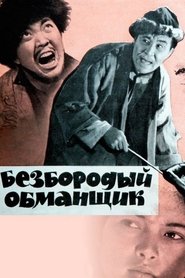 Aldar Kose is not a name...
Aldar Kose is not a name...Beardless Deceiver 1965
Aldar Kose is not a name, but a nickname. Aldar means deceiver, Kos - beardless. And what was the name of this man in fact, and whether he lived at all, no one will say for sure. But in every Kazakh village, in every yurt in the mountainous Dzhailau, they talk about Aldar Kos as their good friend. He tells about him in different ways, but everything converges on the fact that he was poor and kind, hated the oppressors of the people, fought against injustice and helped the offended... Like a tumbleweed bush, Aldar Koshe, who was forever wandering through the boundless Kazakh steppes, once met a beautiful woman and fell in love with her. But the girl loves another — a brave, honest and kind poor man, herding the herds of a rich man.
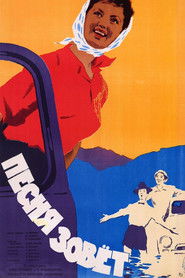 In the center of the plot...
In the center of the plot...Song Calls 1961
In the center of the plot of the film is the fate of a young girl Aigul. She works well in the collective farm fields, acts as a leader of the youth, dreams of creating her own folk theater in her native collective farm. The famous singer Dosai Nurlanov, by a misunderstanding, gets into the "Singing village" (this is the playful name of the collective farm) and becomes a witness to the growing culture of the village. This inspires him to become the head of the people's theater...
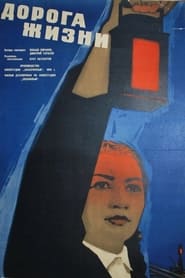 The train goes to Moscow In...
The train goes to Moscow In...The Road of Life 1959
The train goes to Moscow. In the same carriage with the railway workers who are going to the meeting, there is a Chinese writer collecting material for his future novel about the people of Soviet Kazakhstan. He discovers an old newspaper in his archive. The newspaper contains photos of the best drummers — builders of Turksib: Ospan, Hakim, Boris, Hadisha and others. They turn out to be the writer's neighbors on the car — yesterday's ordinary workers, builders, now the most prominent statesmen, heads of railways. At the request of the writer, Ospan tells a touching story of their life and love.
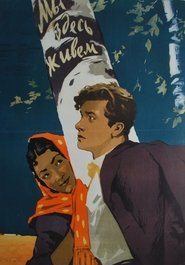 1954 The first detachment of young virgin...
1954 The first detachment of young virgin...Here We Live 1956
1954. The first detachment of young virgin lands arrives in the remote Kazakh steppe. The old forester Bulanbai warns the guys about the difficulties, but the youth boldly gets to work. We have to fight not only with the harsh nature, but also with the inertia of the director of the trust of state farms Kuanysh Korkutov. Contrary to his instructions, the director of the Komsomolsky state farm Kudryash prefers to process heavy, but more promising land masses. The secretary of the regional committee Beisov supports Kudryash. Korkunov is being removed from office. Soon a new group of young people arrives at the state farm...
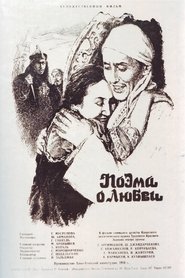 A film based on the Kazakh...
A film based on the Kazakh...A Poem About Love 1954
A film based on the Kazakh epic poem of the XIII-XIV century. The film tells about the founders of Sarybay and Karabay, who, due to circumstances, violate the oath given to each other to seal their blood-tied friendship. However, their children Kozy Korpesh and Bayan Sulu develop mutual feelings.
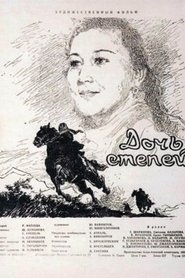 The first years of Soviet power...
The first years of Soviet power...Daughter of the Steppes 1954
The first years of Soviet power. The rich Aktanbai decides to steal his flocks abroad. However, only the shepherd Malbagar knows the secret paths in the mountains. Therefore, Aktanbai, giving the orphan girl Nurzhamal to Malbagar as a wife, demands to indicate the way through the mountains for this. On the way to the border, Malbagar, heeding the requests of Nurzhamal, who did not want to be his wife, helps the girl escape from the camp of Aktanbai. Years pass. Nurzhamal, after graduating from medical school, returns to his native village...
 High in the mountains of the...
High in the mountains of the...Golden Horn 1948
High in the mountains of the Trans-Ili Alatau there is an experimental station of the Kazakh Institute of Animal Husbandry. A young scientist, Jacques Dosanov (Shaken Aimanov), is working on breeding a new breed of sheep, trying to cross a merino sheep and a wild argali ram. With great difficulty, he manages to catch argali in the mountains. Datsanov and his assistant Saule take care of five sheep fertilized by a wild ram. But in difficult mountain conditions, four queens died, and the only lamb born from the fifth sheep was killed by an accidental shot by a hunter. However, Hasanov does not give up. He undertakes to repeat his experience, this time on an immeasurably large scale. A few years later, the scientist managed to grow a whole flock of archaromerinos.
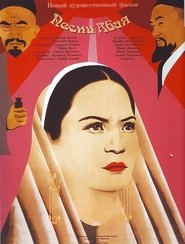 The screen adaptation of the novel...
The screen adaptation of the novel...Songs of Abai 1946
The screen adaptation of the novel "Abai" by Mukhtar Auezov recreates the story of prominent Kazakh poet and philosopher Abay Kunanbayev. The famous Kazakh poet became friends with the Russian exile, scientist Nifont Dolgopolov. Under the influence of their growing friendship, Abai formed some of his academic ideas and principles.
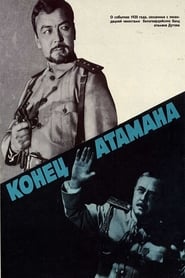 A Kazakh spy thriller In 1921 at...
A Kazakh spy thriller In 1921 at...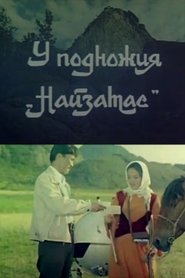 The prototypes of the heroes of...
The prototypes of the heroes of... About the Kirghiz aristocracys attempt to...
About the Kirghiz aristocracys attempt to...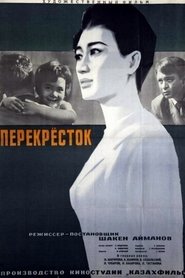 The film tells about the ambulance...
The film tells about the ambulance...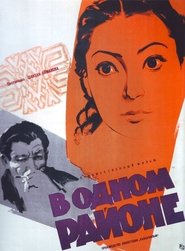 About the secretary of the district...
About the secretary of the district...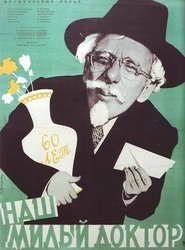 Doctor Lavrov is a head physician...
Doctor Lavrov is a head physician...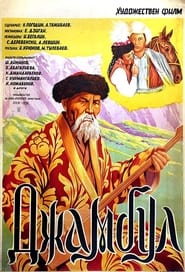 The film tells about the life...
The film tells about the life...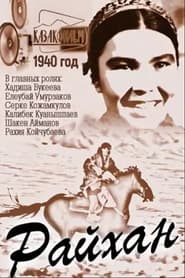 About the emancipation of Kazakh women...
About the emancipation of Kazakh women...